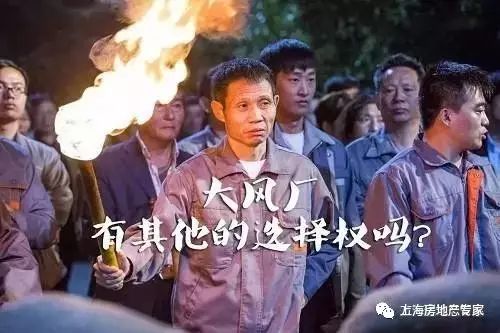正文
• And anyway, people tend to follow media outlets that confirm their beliefs rather than challenge them.
不过,人们还是更趋向于相信媒体的报道而不是去质疑虚实。
• Thus following the media experts, while entertaining, can be a waste of time intellectually.
所以搞笑的是,跟着媒体的专家人云亦云,其实真的很浪费时间。
For
these reasons, I greatly enjoyed an article that appeared in the
Observer on November 16, a week after the election. It was entitled
“Want to Really Make America Great Again? Stop Reading the News.” Ryan
Holiday, its author, talked about what it’s like to be caught up in the
news cycle.
综上,我真的很享受11月16日在观察家报看出的一篇文章,大概是在大选的一周后。这篇文章的标题是:“真的想让美国复兴?别看新闻了”,作者瑞安·霍利戴谈了谈媒体圈到底是如何运作生存的。
For a number of reasons, there has arisen in the media:
出于一些原因,
.
. . a system that needs more and more eyeballs for longer periods of
time while gutting high-quality, reliable sources of information. We
have more “news” but less original reporting than ever before, an order
of magnitude more in the way of opinion and analysis, but as [author and
academic] Tom Nichols has pointed out, somehow less expertise.
媒体需要用高质量及可靠来源的消息,来博取众人眼球,获得长时间关注。较以前相比,我们现在的许多新闻没有原始出处,大量的观点和分析都比较缺乏专业。就像汤姆·尼古拉斯(学者、作家)指出的一样。
Chuck
Klosterman [a writer on American culture] once remarked at how strange
it was to walk through the front offices of a football team and find
that everyone there was watching ESPN. Didn’t they have better
information than the average viewer or reporter? Turns out, no –
they’re addicted to the same media we are and subject to the same
groupthink. . . .
查克·克洛斯特曼(美国文化作家)曾经感叹过,有一次他穿过某足球俱乐部的办公室,发现里面所有的工作人员都在看ESPN,这让他有点儿摸不着头脑。难道这些工作人员不比记者们更加的了解体育信息么?其实并不是,他们只是喜好媒体的报道,而且被集体思维所支配。
Twitter
isn’t designed to help you get in and out with the best information as
quickly as possible – it’s supposed to suck you into either a
contentious world of argument and debate or an echo chamber that
reassures you everyone thinks like you do. . . .
推特很显然并没有让你第一时间得到更多的信息,它更像是一个强迫别人认同自己、一言不合就开撕、互相争吵开骂的地方。
We’re “participating” in the ecosystem because it’s addicting and because we’re curious.
我们就在这个生态圈里面,因为我们好奇并且被吸引。
So author Holiday came up with a useful prescription in response:
所以,霍利戴为此开出了药方:
It’s
not that I am going underground or completely disconnecting from
current events. It’s that I have decided I am no longer going to watch
them develop in real time. I’m going to watch the Saints play every
Sunday, [but] I’m not going to fool myself into thinking that tuning
into “Sports Center” on Tuesday will help.
我们要以长远和发展的的目光看待问题,当然这不是说,我们要去跟这个世界割裂。我们要去现场看一场球,而不是每个星期二打开电视看个体育新闻,这并没有什么卵用。
A
lot of people’s lives would be more tranquil and more productive if
they accepted that what the media says about an upcoming event – and
whether you watch or not – won’t have any impact on the outcome.
如果你接受媒体所说的关于未来的评论,生活会很轻松也会更高产,这省去了思考的时间。但是其实,这些评论对未来根本不起任何作用。
What Do the Experts Know?
专家到底知道些啥?
One
of the reasons I crafted this memo this way is so I would have a chance
to return to a subject I introduced in 2015: the New York Post’s “NFL
Bettor’s Guide.” Each week during football season, the Post’s eleven
experts advise its readers as to which teams to bet on. Here’s how the
experts did over the full 17-week season, covering 256 games:
我要如此写这个备忘录的另一个原因是,我有机会来说一下2015年我提过一个东西:纽约邮报的“美国职业橄榄球彩经”。每赛季的比赛周,邮报的十一位专家们都会给读者推荐一下该给哪个球队下注,下面是这些专家们在过去17周的表现,包括了256场比赛:
• The best picker was right 55.1% of the time.
最厉害的一个专家的正确率达到了55.1%
• The worst picker was right 48.8% of the time.
最差的一个的正确率在48.8%
• On average the pickers were right 51.6% of the time.
专家们的平均正确率在51.6%
The experts further help readers by specifying up to three “best bets” each week. Here’s how they did on their strongest picks:
专家们每周还会进一步的推荐三个“最佳投注”,然后我们来看看结果:
• The best picker was right 62.7% of the time.
最厉害的一个的正确率达到了62.7%
• The worst picker was right 43.1% of the time.
最差的正确率是43.1%
• On average the pickers were right 54.0% of the time.
平均正确率是54.0%
The available observations from this data are as follows:
从这些数据中你可以得到一些比较可靠的结论:
• The way the overall results are distributed around 50/50 suggests the experts’ process is little more than a coin toss.
就跟抛硬币一样,专家们的意见也差不多就是50/50的样子。
• On average the experts were right just 2.4% more often on their “best bets” than on all their picks.
他们所谓“最佳投注”也就比平常的那些高出了2.4%左右。
• Two of the experts did worse on their “best bets” than on their other picks.
有两个专家的“最佳投注”比他们的平常预测还要糟糕。
• Eight
of the eleven pickers were right more than half the time. But since it
costs about 5% per week on average to bet with the bookies, virtually
none of the eleven experts’ overall picks added value after fees (sound
familiar?). Even the average of the experts’ “best bets” wouldn’t have
produced a positive return after fees.
11位专家里面有8位正确率超过了一半,但是一般来说,一旦赌徒们的花费超过5%,没有一位专家的选择是带来了额外收益的,就算是“最佳投注”也没有带来任何积极的效果。
Two additional observations:
另外值得注意的两点:
• In
week 16, all eleven of the experts predicted the favored New York
Giants would beat the Philadelphia Eagles, and five of the eleven
thought the underdog New York Jets would beat the New England Patriots
(in both cases, after adjusting the scores for the “point spread” that
the bookies impose to equalize the two teams’ chances of winning). When
the games were played, the favored Giants lost by five points (meaning
they did even worse after the 2½-point spread was subtracted from their
score), and the Jets (who were expected to lose by 16½ points) lost by
38 instead. In other words, (a) the experts may have been heavily biased
in favor of the New York teams and (b) they were wrong 73% of the time
on these two games。
在第16周,所有的11位专家看好纽约巨人会战胜费城老鹰队,5位专家认为纽约喷气机会战胜新英格兰爱国者对。(从两方面来看,根据赛前赔率,投注者会发现,其实两个队赢得比赛的机会都差不多。)比赛结束后,纽约巨人输了五分。(他们在被让了两分半的情况下,都没能赢得比赛。)喷气机对输掉了38分(赔率显示他们会输16.5分)。换句话讲,1、专家们比较偏好纽约的球队,2、专家们在这两场比赛的错误率达到了73%。
• Bettors
also have the option to bet on the “over/under” in a game – that is,
whether the two teams’ combined score will exceed or fall short of a
threshold set by the bookies. It’s just another way for bettors to get
“action.” The results show the experts were right in 128 games (52% of
the time) and wrong in 123 (there were five ties). Again no value added,
especially after fees.
投注者还有一个玩法,就是“大小球”。意思是投注者要就两个队相加起来的比分是否超过或低于某个数值而进行投注。这只是让投注者觉得好玩的另一种玩法。最后结果显示专家们对了128场(正确率52%),错了123场(只差了5场)。这还是没有意义,特别是在已经下注之后。
If
economists won’t publish their performance data, the Post at least
performs a service by showing how its football experts did. The bottom
line is that their opinions are of little help, and the related coverage
omits all discussion of their lack of predictive value.
















